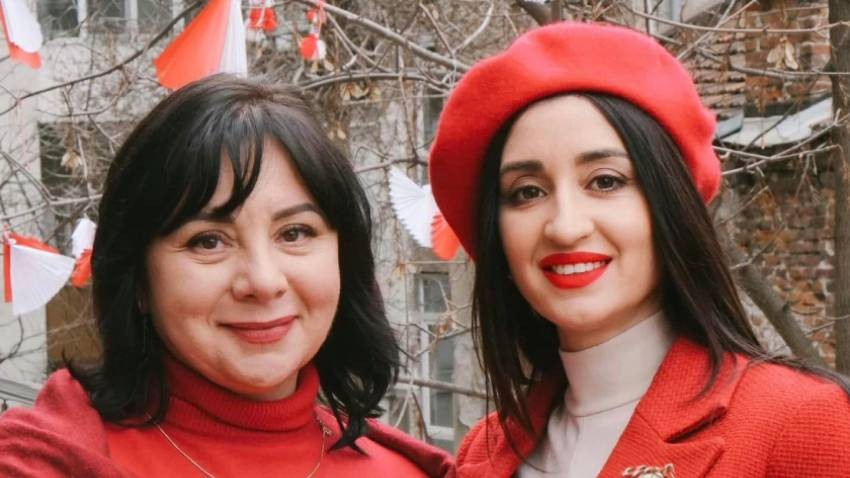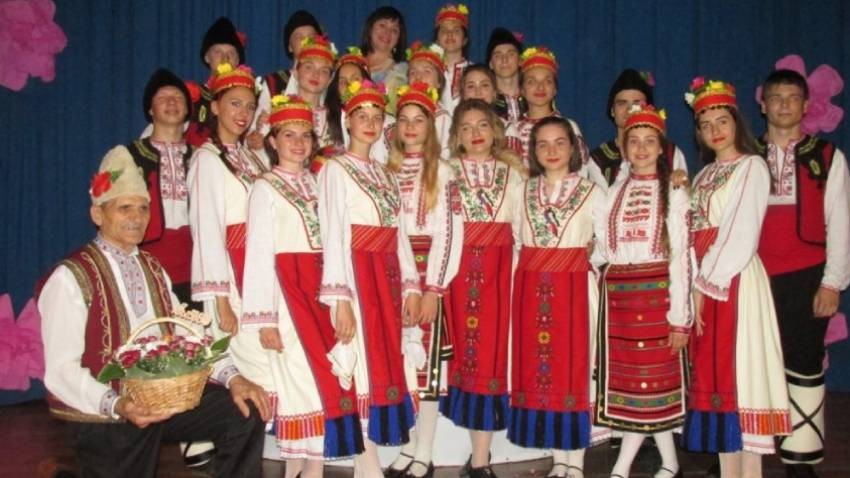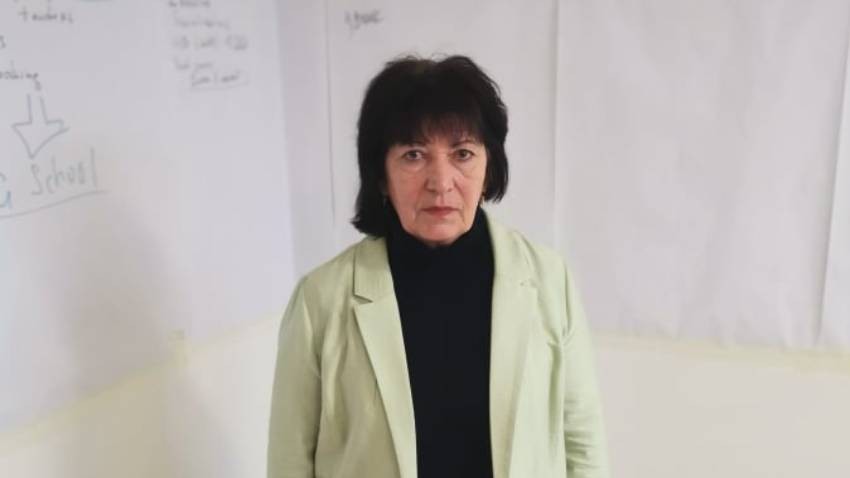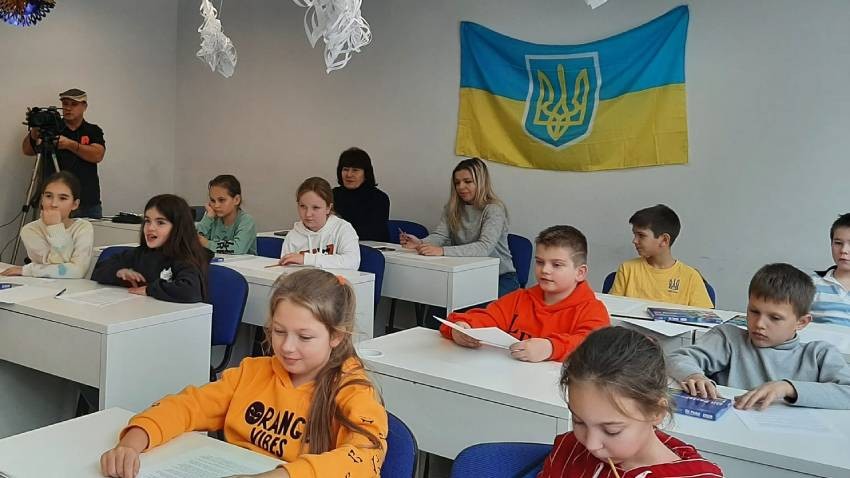Pain, fatigue, uncertainty and fear for tomorrow. This bitter cocktail of emotions is what the citizens who have not been able to leave the Russian-occupied territories since the start of the war in Ukraine a year ago live with. These include quite a few Bulgarians who were forced to stay due to a lack of means with which to secure their ticket to safety. In the next paragraphs we introduce to you two women who, fortunately, have had this chance and have not hesitated to take it. Both of them live and work at the The Ukrainian educational centre in Sofia, but they do not stop teaching online to students have stayed in Ukraine and those who have migrated to different parts of Europe.
"My name is Arina Miteva from Melitopol and I am an ethnic Bulgarian. Besides being a teacher, I am also the president of the Bulgarian society in our town and the director of the Bulgarian Sunday school "St. Cyril and Methodius". Before the war, 252 children studied there" - says Arina Miteva in an interview with Radio Bulgaria and shares an interesting fact about her native town:
"Melitopol was the multicultural capital of Ukraine, where more than 100 ethnic groups lived. The Bulgarian population was the third largest, probably around 20,000."
At the cost of many sleepless nights and hard work, Arina and the Bulgarian community there succeeded in founding the Bulgarian "Balkans" Society. Now it has 750 members from Melitopol and the villages, who used to gather together to celebrate all Bulgarian holidays.
"Every year in the last week of February we used to have a Week of Bulgarian Culture in the town of Melitopol. In this way it coincided with the dates of March 1 and 3, which we also celebrated solemnly", Arina tells us.

The activities of the society and of the school continue to this day, albeit in an online format:
"We owe it to all our compatriots who stayed there or moved to other Ukrainian cities or abroad. The activities of the Bulgarian Society and the School have been an important part of their lives that they do not want to part with. It is extremely difficult, as they have to hide, lest their neighbours find out that they are still doing something connected with their homeland. The children also have to hide that they are still learning Bulgarian. Since not all of them can attend our classes regularly, we are currently working with about 135 of them scattered around the world."
Lyubov Encheva, like Arina, has not abandoned her students, who can still take her classes online. As a teacher at the Bulgarian Sunday school in the village of Preslav, located in the Primorsky district of Zaporizhzhya region, she recalls with bittersweet emotion the pride and joy of her students at having the opportunity to learn Bulgarian. This is no longer the case because the local school teaches only Russian language and Russian history.

"This is the first school in Ukraine to teach Bulgarian two hours a week. I personally never got the opportunity to learn Bulgarian because in the Soviet Union there were no textbooks or books in Bulgarian. Thanks to my parents, we still managed to learn some Bulgarian, albeit archaic and full of russisms. Only when Ukraine became a free and independent state in 1991 were all national minorities allowed to learn their native language."
Before the war about 2500 people lived in the village. It was founded by Bulgarians who migrated from Bessarabia in 1861. The first buildings they erected were the church and the school, and then they began to build houses for everyone.
In Bulgaria, Lyubov Encheva is a teacher of Bulgarian language and biology to students in grades 1 to 4 at the Ukrainian Education Center. She arrived in this country in June 2022. She tells us that instead of about 80 euros, as it was before the war, her ticket freedom cost 700 euros. The journey to Bulgaria lasted 4 days, passing through Crimea, Georgia and Turkey.
Even though the two women realise that Ukraine will never be the same again, they hope that the war will end soon and that they will be able to return to their homeland.
April 8 is the day when Roma people around the world celebrate their identity. " International Roma Day is a time to show that we are part of the Bulgarian nation, of the European community and contribute to the development of local, but also global..
Every Bulgarian school abroad has its own story, and that of the Rodna Stryaha Bulgarian school in Cyprus began in 2015. Its foundations are built on the dream of a Bulgarian teacher - when one day Bulgarian children decide to return to their..
President Rumen Radev will today attend the opening ceremony of Forest Week in front of St Alexander Nevsky Cathedral. The theme of this year's celebrations is "A century of eternal creation, preservation and care!" This year marks the 100th..
For the 32nd time, the Children's Easter Festival will bring together Bulgarian children from different countries in Bosilegrad, Serbia, giving them a..
In 1992, a child from Georgia packed her entire life into a small black canvas bag to escape the horror of the bombs… The war through..
Looking and feeling your best doesn’t have to come at a high price — especially in Bulgaria. The country has become a rising star in beauty tourism,..

+359 2 9336 661
